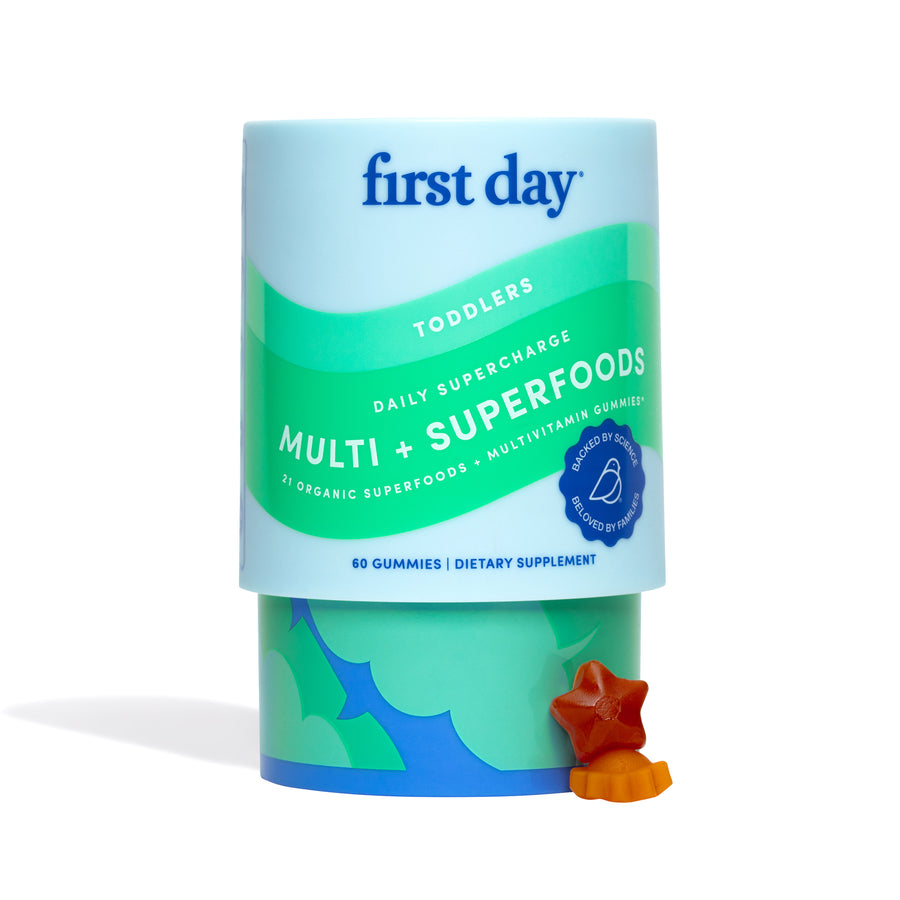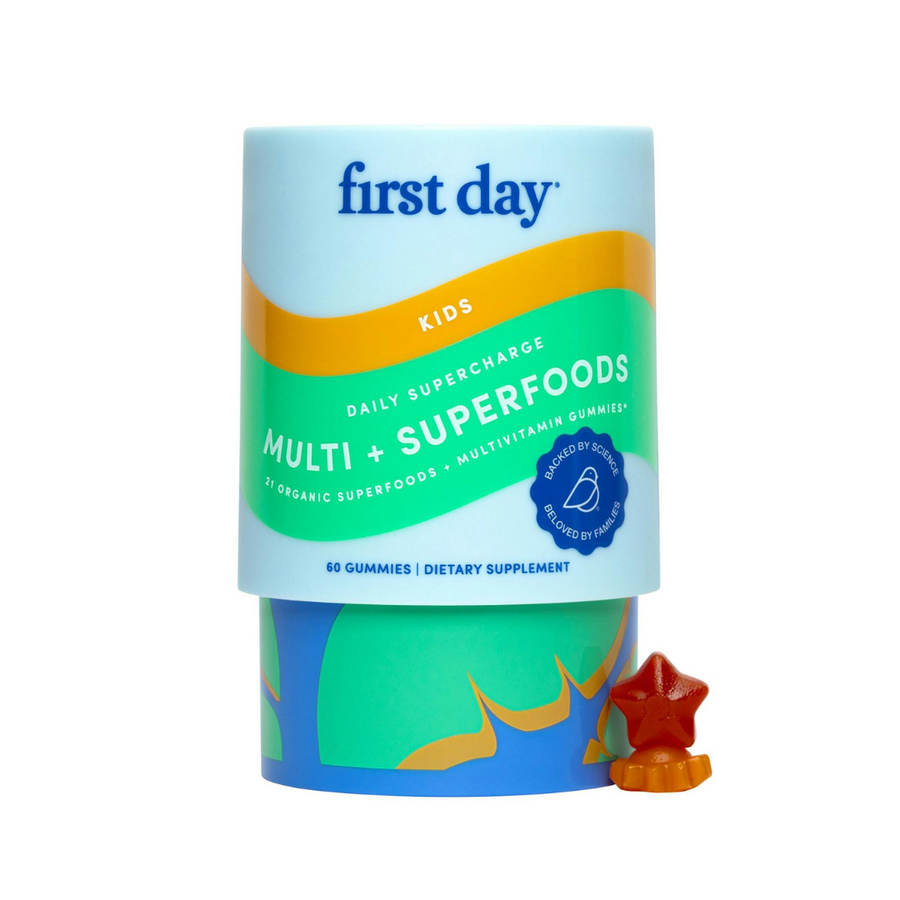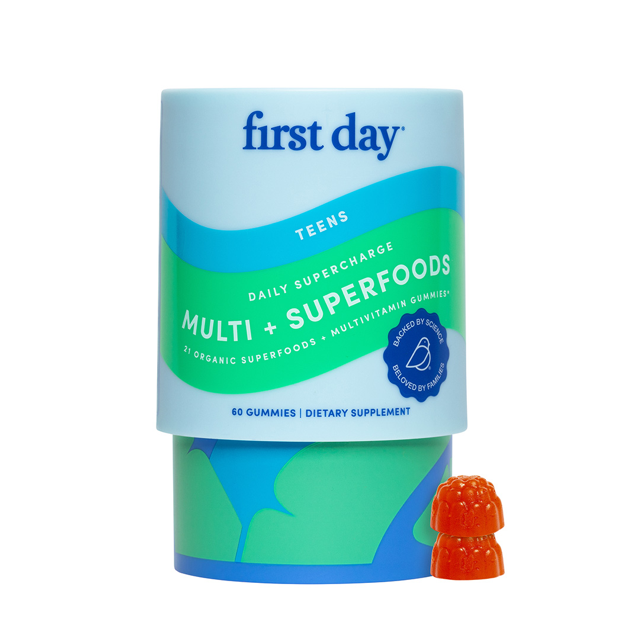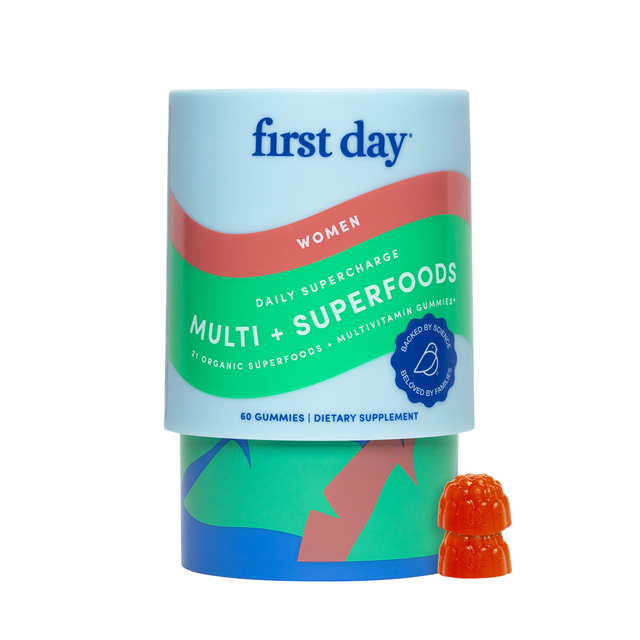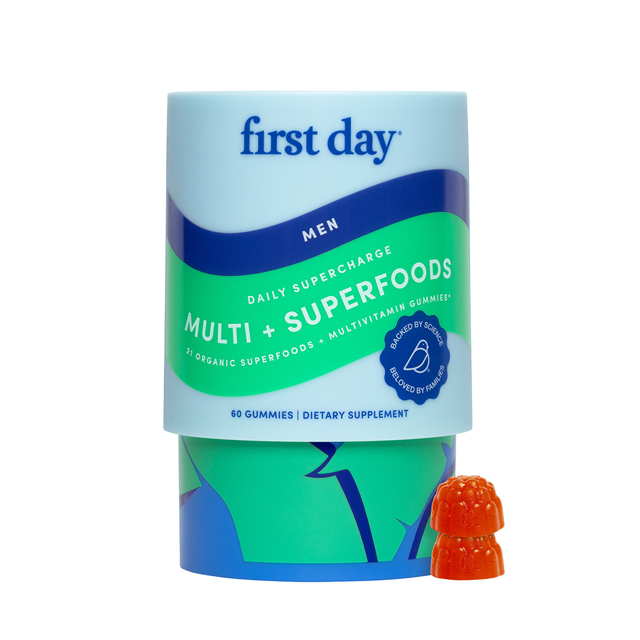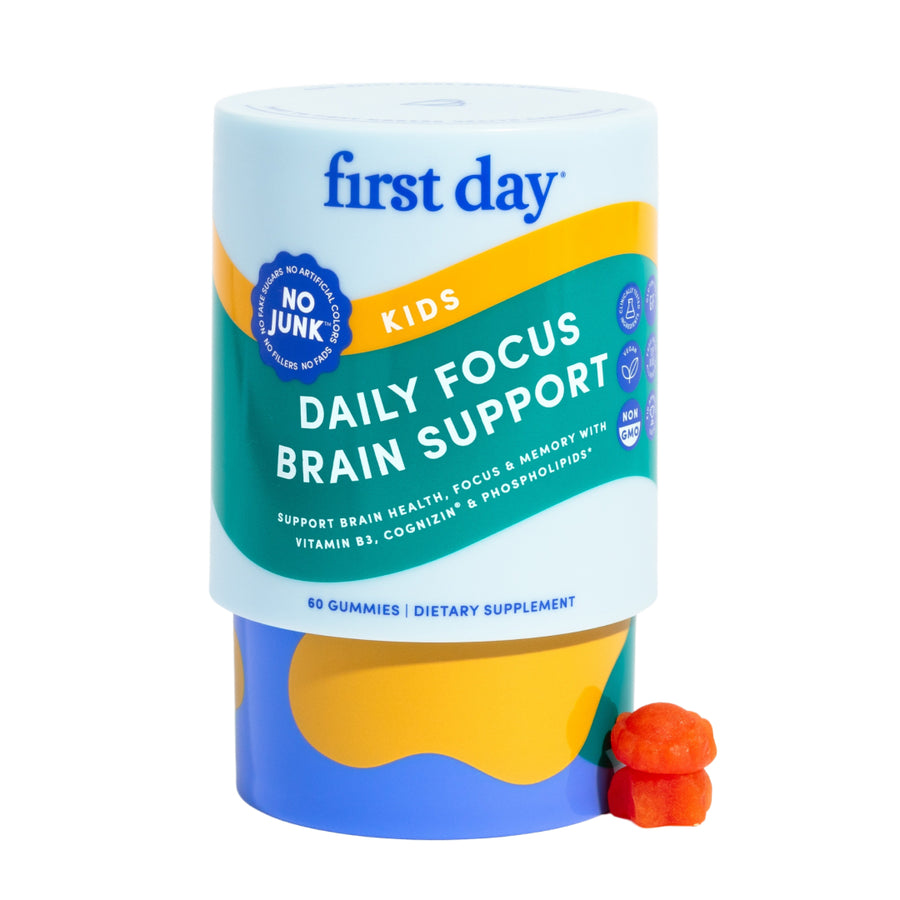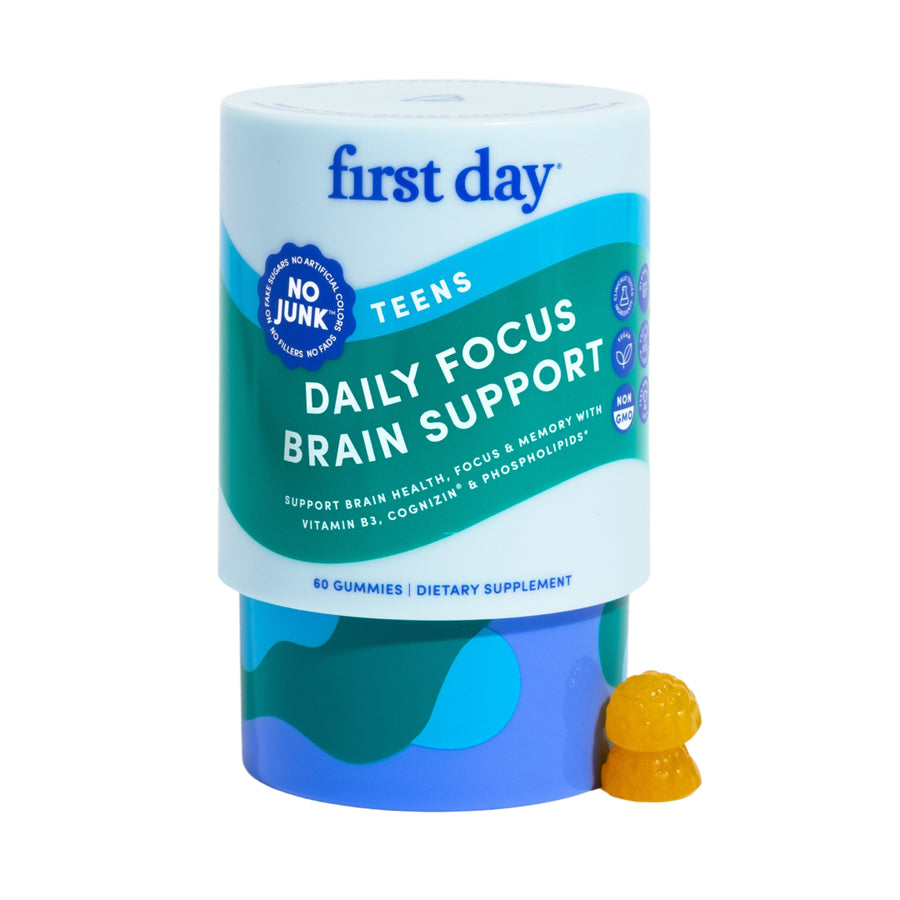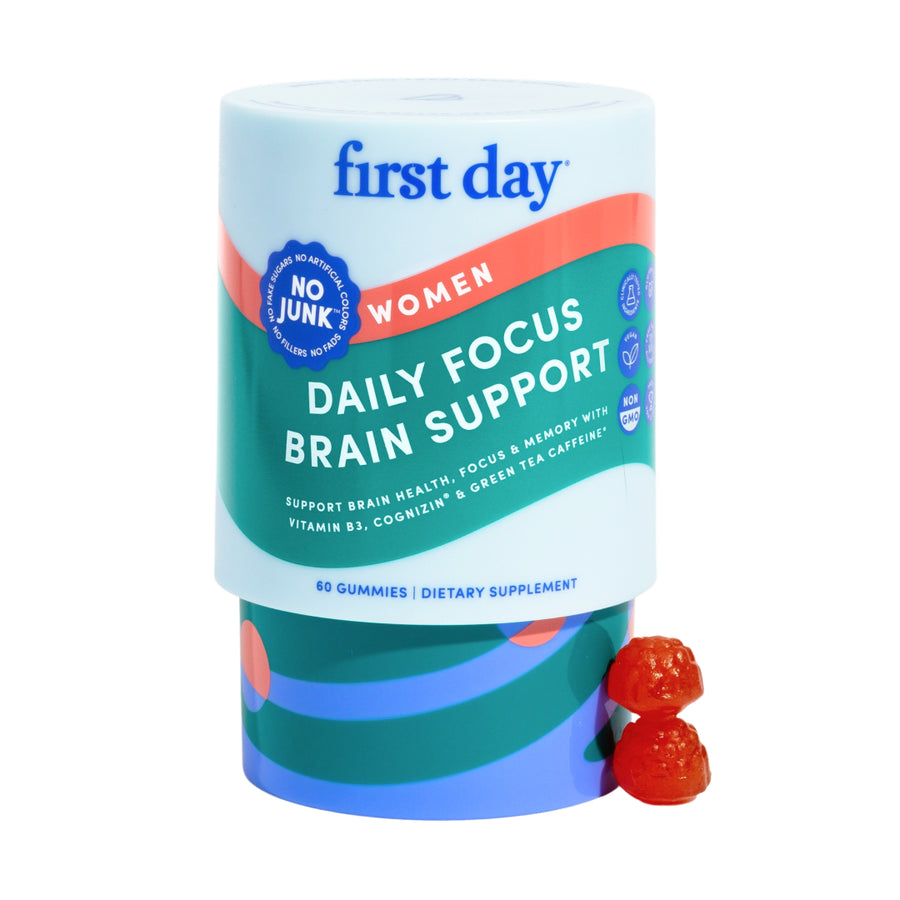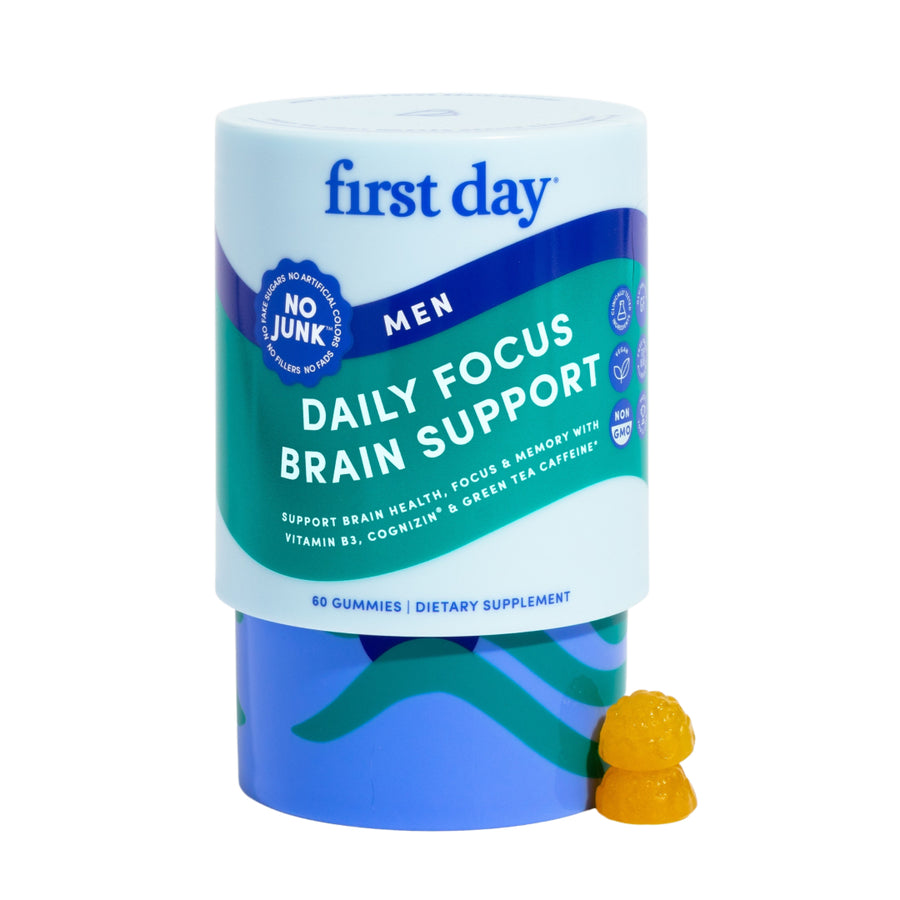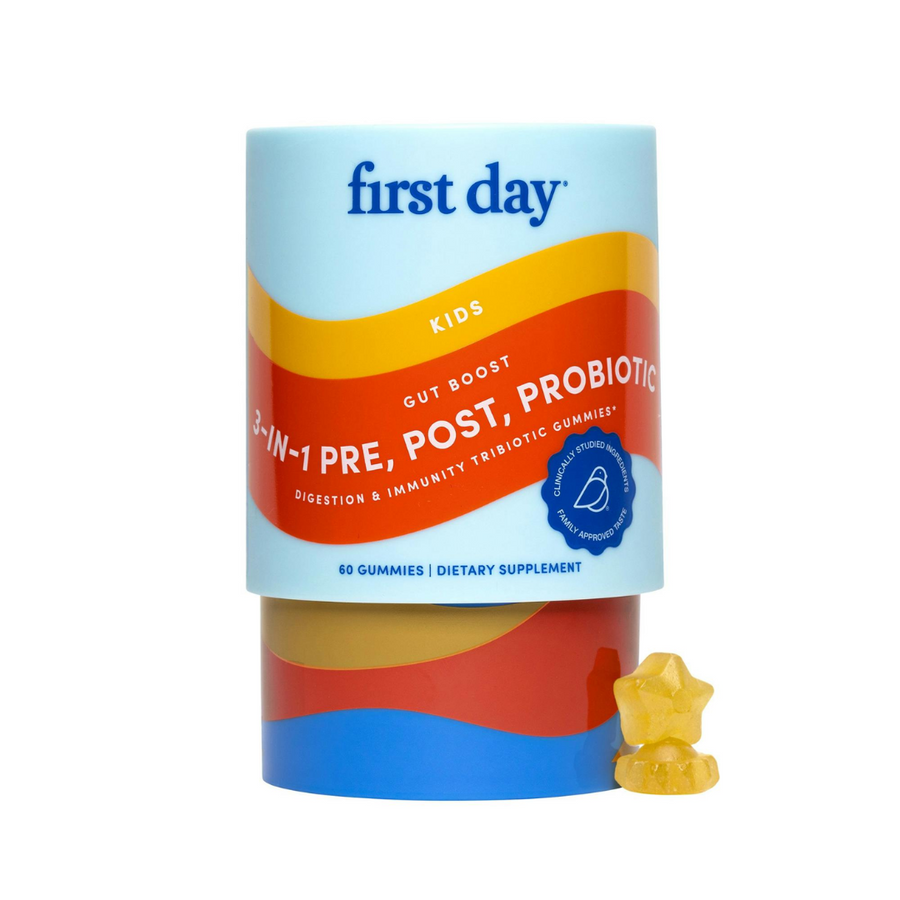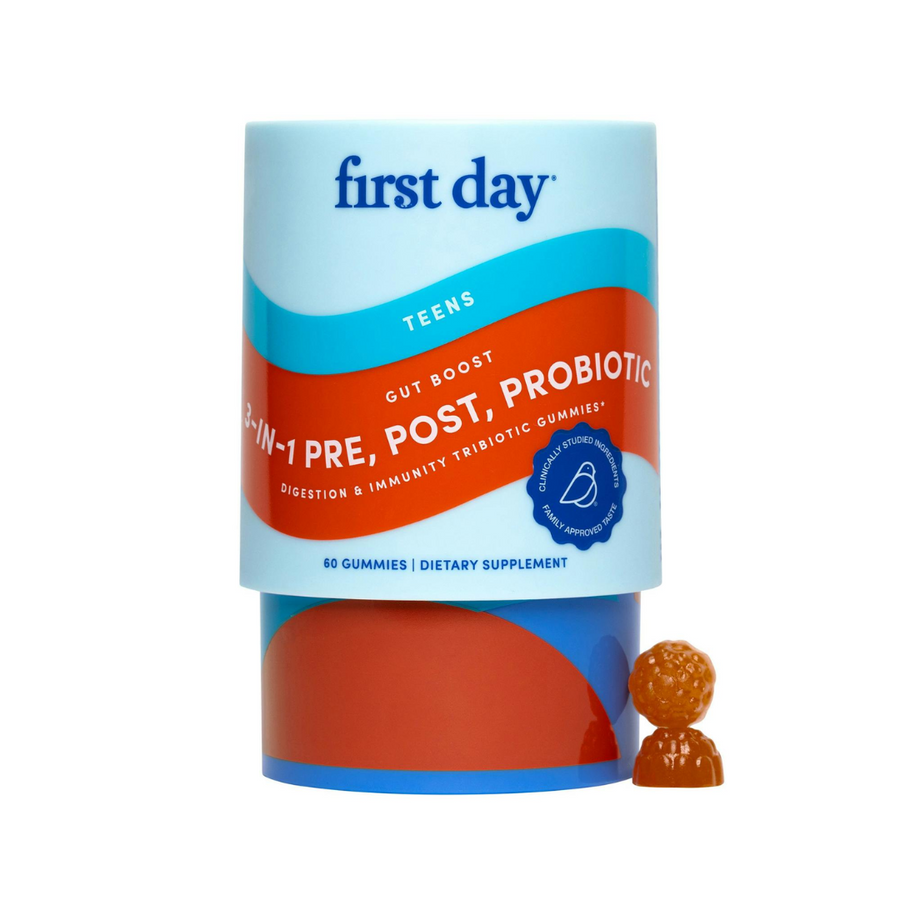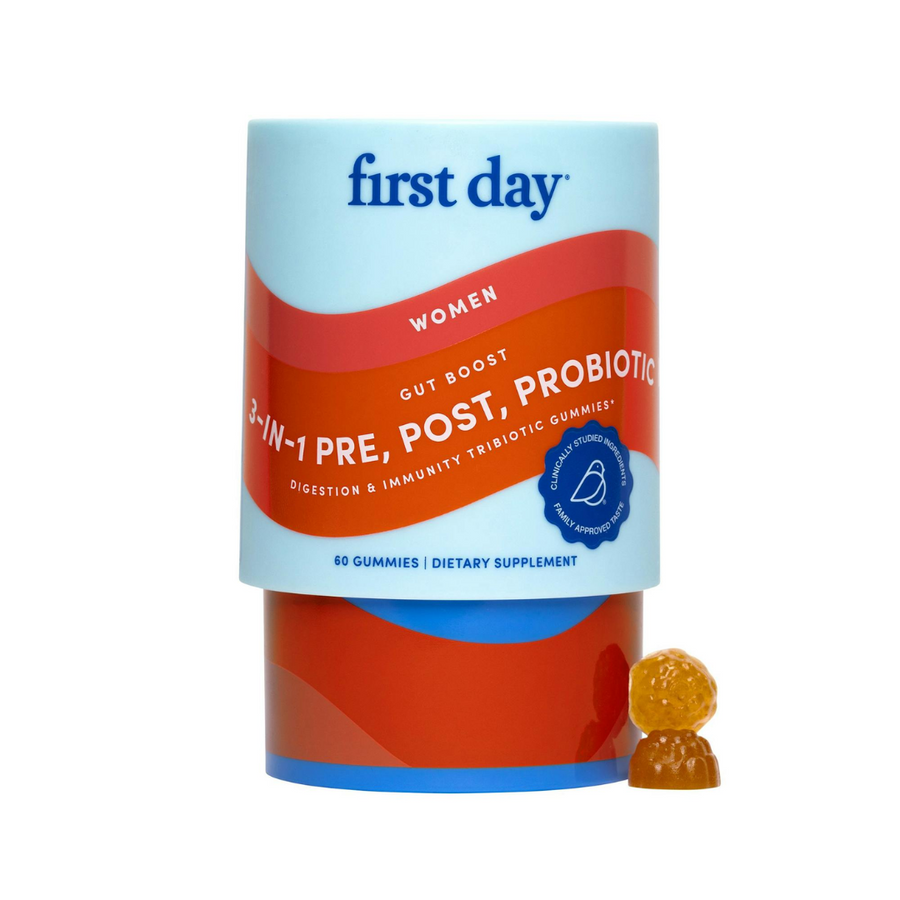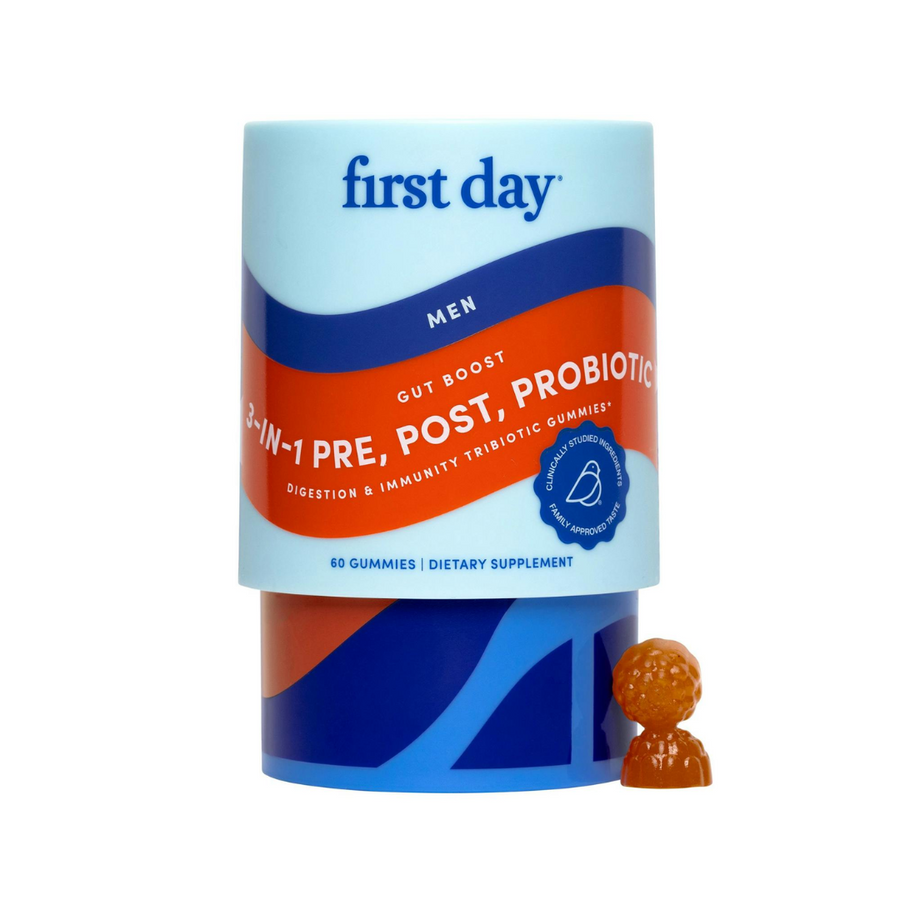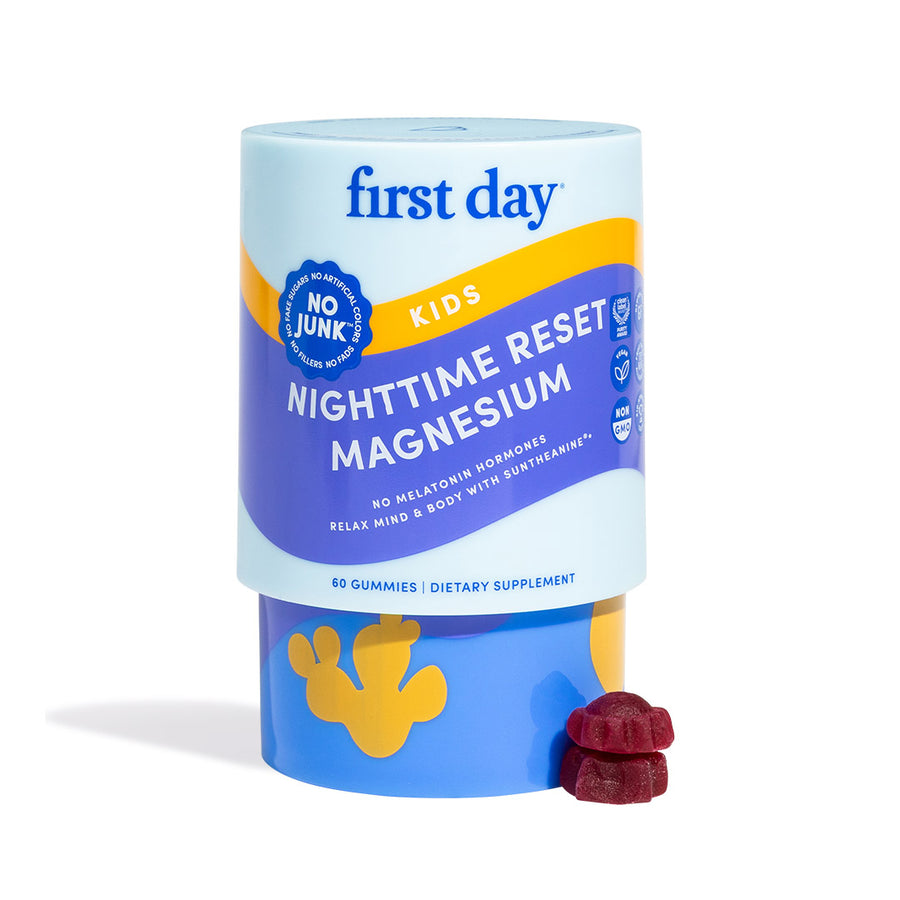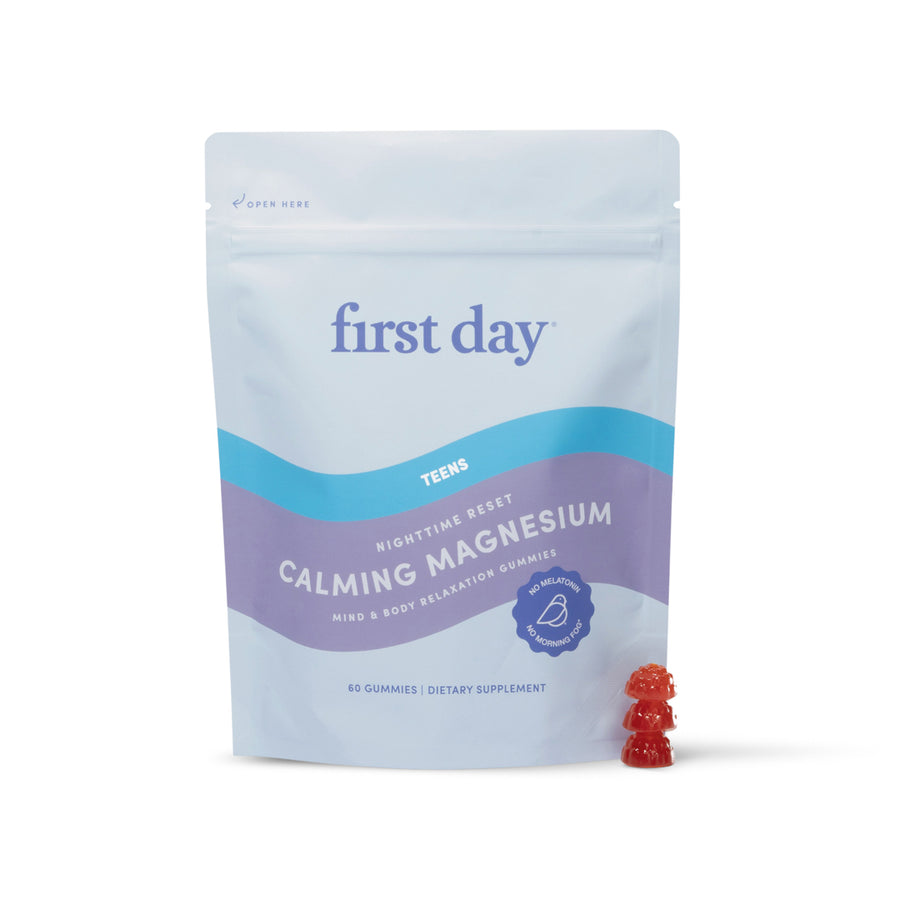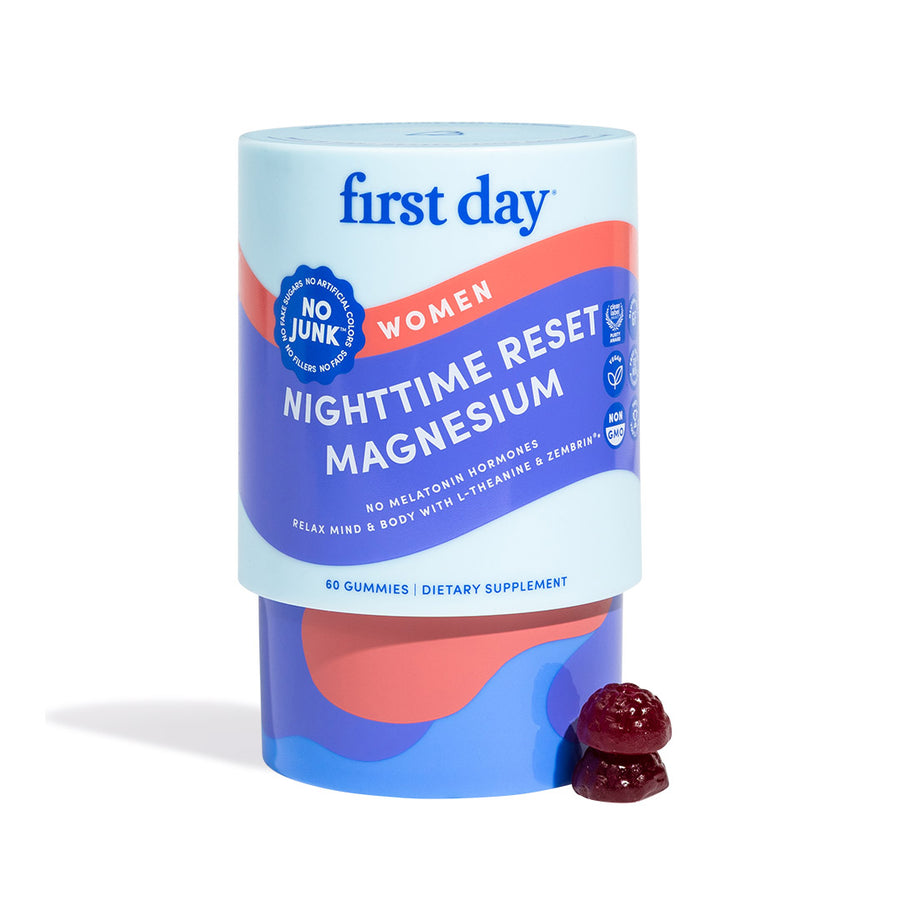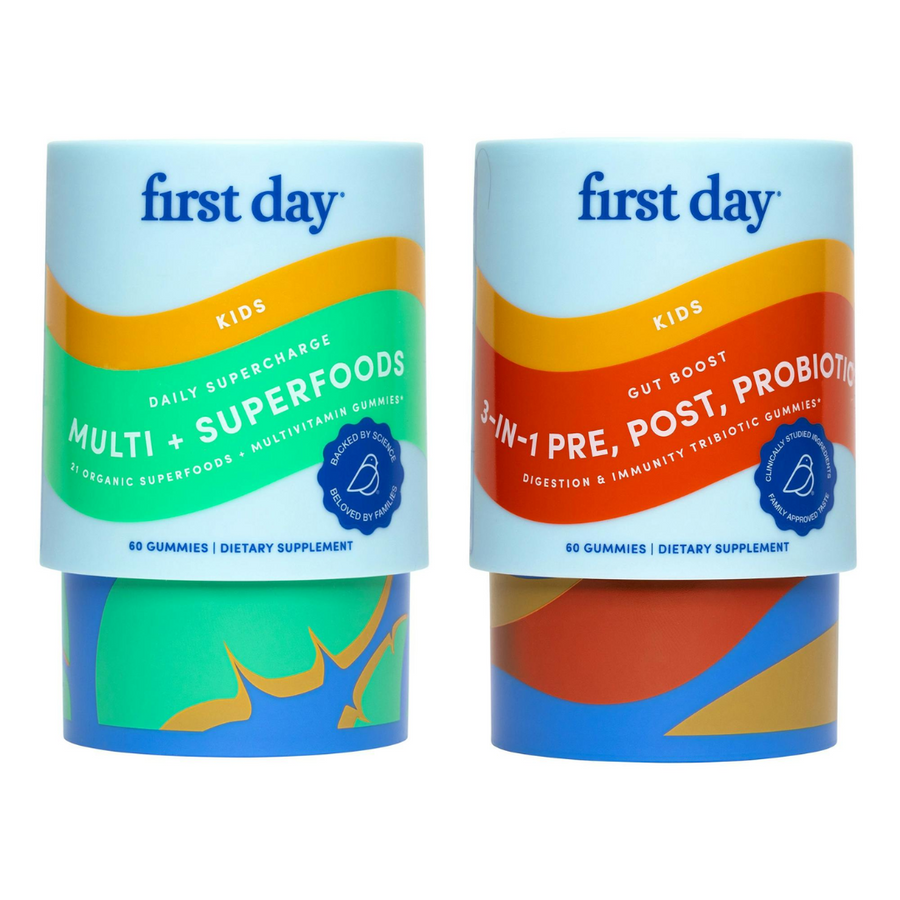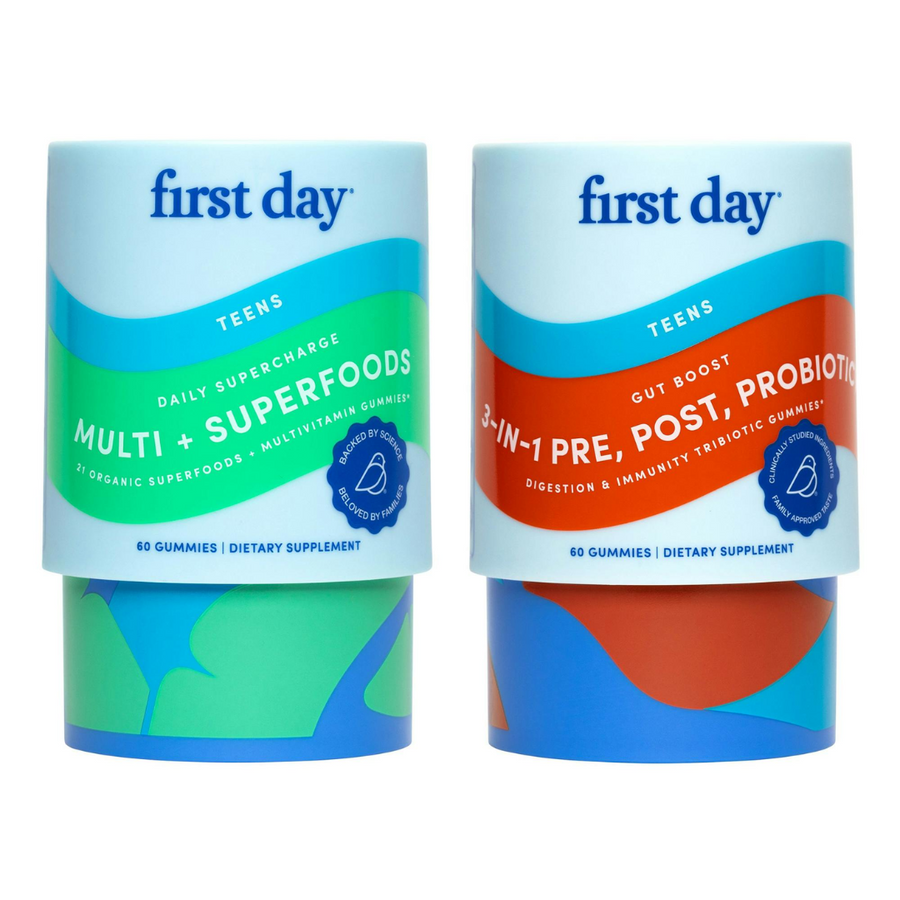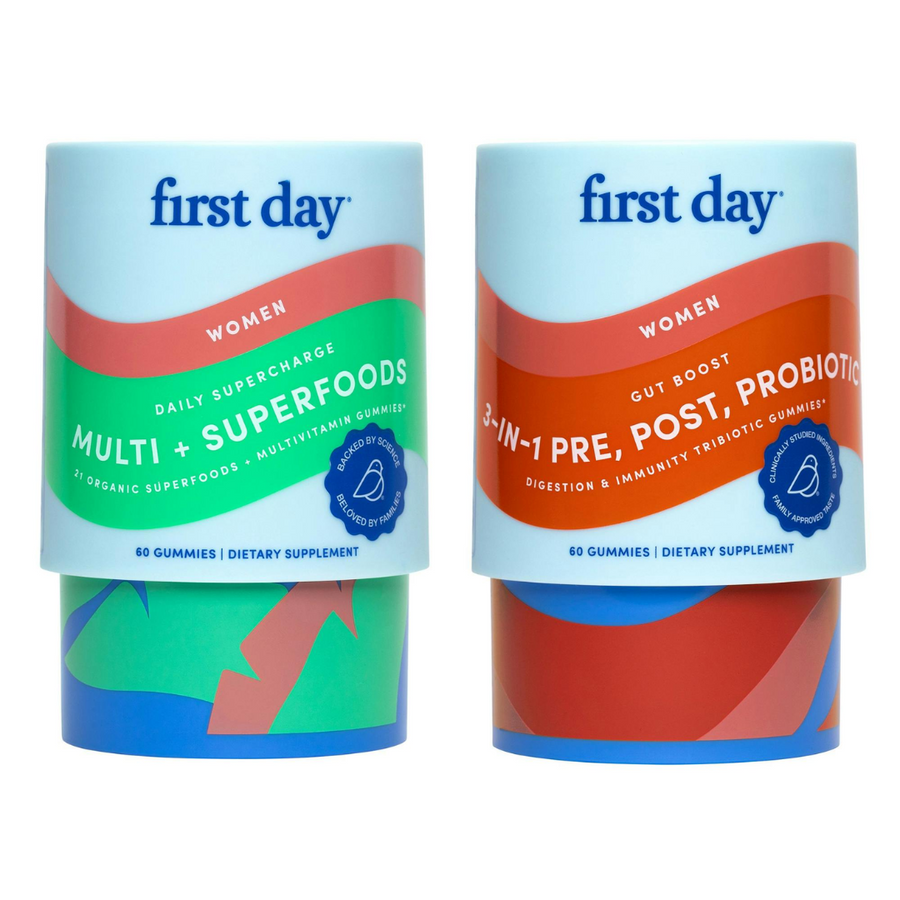There's something called 'leaky gut syndrome' and chances are, you may have not heard of it. But, according to the University of South Florida, countless Americans are impacted by this condition.
So, you might be wondering, what is a leaky gut?
Picture this: Your gut is like a fortress, guarding your body from harmful substances. But sometimes, the walls of this fortress can get a little...well, leaky. And this can lead to a whole bunch of physical and emotional upheaval - we're talking bloating, food sensitivities, fatigue, mood swings, and even skin problems.
It's a whole roller coaster ride -just less enjoyable and more painful. But don't worry, we're here to give you the lowdown on what is a leaky gut, its causes, and its effects!
The Basics: What is Leaky Gut?
Alright, let's break it down.
Your gut has a lining that prevents all the bad stuff from getting into your bloodstream. This lining is made up of tiny spaces called “tight junctions.” These tight junctions are sealed tightly to only allow necessary nutrients into the blood while keeping harmful substances out. But, why is a healthy gut barrier so important, you ask? Well, imagine it's like your body's goalkeeper, defending your health against the oncoming attacks of harmful invaders. When the barrier is strong and secure, it's like having the world's best goalie on your side - stopping those toxins in their tracks.
But when there's a breach in this lining, it allows undigested food particles, toxins, and bacteria to pass through into your bloodstream. And that's when you have what is known as 'leaky gut syndrome'.
This is like your goalie's gone for a nap and left the goal wide open. Not a pretty picture, huh? That's why maintaining a healthy gut barrier is crucial for keeping everything in balance and ensuring your body can function at its best.
What Causes Leaky Gut?
You may be wondering, how does this fortress get breached? Well, it's not just one cause but a combination of factors that can weaken or damage the gut lining. These include:
Poor Diet
Here's the deal: your gut has a thing for healthy foods. Or, to put it simply, it loves a balanced diet. Consuming too much processed food and sugar can irritate the gut lining, causing those tight junctions to loosen up, which can lead to a leaky gut.
So, your gut basically gets upset when it's not treated right. The solution? Treat your gut to a balanced diet full of fresh fruits, veggies, and lean protein. Minimize the junk, and your gut will be grateful for it.
Chronic Stress and Depression
Guess who doesn't handle stress well? Yep, it's your gut again. Chronic stress and depression take a toll on your body, including your gut, causing inflammation and contributing to that leaky situation. In other words, your gut enjoys a chill, relaxed environment to function.
So, what can you do?
Foster a healthy work-life balance by prioritizing self-care. This can include various stress management techniques such as yoga, meditation, or taking breaks when needed.
But this is a start. It's also important to note that mental health struggles are real and that seeking professional help like therapy or speaking to your doctor are viable options. Your well-being matters, and finding the right support is key to finding peace within yourself.
Lack of Sleep
Your gut doesn't just need the right food and a stress-free environment; it also needs plenty of rest. Lack of sleep can disrupt your gut's rhythm, leading to, you guessed it, a leaky gut. So make sure you give it plenty of rest. Try setting a regular sleep schedule and sticking to it. Because, like you, your gut needs its beauty sleep!
Medication Overuse
You know those antibiotics you take whenever you’re feeling a little under the weather? Or the painkillers that provide relief from that nagging headache? While these medications are helpful, overreliance on them can harm your gut. Too many antibiotics can disrupt your gut's microbiome, leading to an imbalance that might just result in a leaky gut. And non-steroidal anti-inflammatory drugs? They can irritate your gut lining.
So, take your medication responsibly. If you're feeling unwell, always speak to your doctor first instead of self-medicating.
Alcohol
Ever heard the saying, "Too much of anything is bad?" This definitely applies to alcohol. Excessive alcohol consumption can cause inflammation and damage to the gut lining, making it 'leaky.' But don't worry, this doesn't mean you have to give up your Friday night glass of wine. As with everything else, moderation is key. Practice responsible drinking since this is always a good idea for your overall health, not just your gut.
Recognizing the Signs: Symptoms of Leaky Gut

So now that we've got the causes covered, let's jump into the juicy bit - the signs that scream "Hey, you've got a leaky gut!". Here are 6 red flags you should pay attention to:
- Food Sensitivities: Ever felt bloated or nauseous after eating certain foods? That could be one of the warning signs. A leaky gut can make your system so sensitive that certain foods might not sit well with you. If you're suddenly feeling uneasy after that bowl of pasta or a slice of bread, it might be your gut trying to send you a message.
- Digestive Issues: Regular bouts of diarrhea or constipation, excessive gas, or irritable bowel syndrome (IBS) can signal a leaky gut. If your gut's leaking, could be your digestion is going to be off the charts...and not in a good way.
- Skin conditions: Who would have thought that your gut could affect your skin? But it's true! Conditions like acne, psoriasis, or eczema could be your gut's cry for help.
- Autoimmune Diseases: Here's a biggie – leaky gut could contribute to autoimmune diseases. This is where your body mistakenly attacks its own cells. So, if you're dealing with something like rheumatoid arthritis or lupus, it may help to check on your gut health in addition to other recommendations from your doctor.
- Mental Health Issues: This one might surprise you, but there's a significant connection between your gut and your brain. If you're constantly feeling down, anxious, or have a diagnosed mood disorder, it could be related to a leaky gut.
- Nutritional Deficiencies: Lastly, if you're deficient in key nutrients like Vitamin B12, magnesium, or iron, despite a balanced diet, it's a potential sign of a leaky gut. Because when your gut's barrier is compromised, it can affect the absorption of essential nutrients. Luckily, this is where tasty multivitamins like First Day can help with plugging those nutritional gaps. so you don't miss out on any vital nutrients.
So there you have it! These signs are like your gut's SOS signals. Of course, a leaky gut is not always the cause, but it may be worth investigating, especially if these issues are persisting. After all, health is wealth, right? And in this case, health begins in the gut!
The Gut-Brain Connection: A Two-Way Street
Now, let's dive into one of our body's coolest features: the gut-brain connection. Picture your gut and brain as two BFFs constantly texting each other. This connection is super important because it’s a two-way street. Messages flow from the gut to the brain and vice versa.
This dynamic duo communicates via the body's own superhighway, the gut-brain axis. This is a complex system that not only ensures your digestion is on track but also that your brain gets the memo if something's up.
Now, you might be wondering what this has to do with your mental health. Well, a lot, actually. Your gut's wall hosts a massive network of neurons. It's so vast that it's often referred to as your "second brain". And this second brain is a chatterbox. It sends signals to your actual brain about how things are going in the gut. If your gut is unhappy, thanks to issues like a leaky gut, those distress signals could contribute to feelings of anxiety or depression.
But remember, it's a two-way street. Just as a troubled gut can send messages to the brain, a troubled brain can also send messages to the gut. Ever had a "gut-wrenching" experience or anxiety-induced stomach ache? That's your brain communicating with your gut. ? That's your brain and gut talking!
So, if you're dealing with mental health issues, it might be a good idea to look into your gut health as well. After all, they say "You are what you eat", but in this case, it's more like "You are what your gut feels."
Diagnosing A Leaky Gut
Believe it or not, your gut is one complex machinery. So, diagnosing a leaky gut isn't as straightforward as diagnosing a common cold. It usually involves a series of tests, each designed to catch different aspects of this condition. Here are some of the most common tests used to diagnose a leaky gut:
- Zonulin or Lactulose Tests: Zonulin is a protein that regulates the permeability of the gut. Elevated levels of this bad boy might indicate a leaky gut. The lactulose test, on the other hand, involves you swallowing a nondigestible sugar solution. If this sugar shows up in your urine, it's a sign your gut might be leaking.
- Comprehensive Stool Analysis: This one might not be the most pleasant test, but it's super useful. It gives your doctor a wealth of information about your digestive health, including any inflammation, infections, or imbalances in your gut flora – all of which could point towards a leaky gut.
Speaking To Your Doctor
While these tests are great, your first step should always be having a chat with your doctor. And by chat, we mean an open, honest conversation about your symptoms, diet, lifestyle, and medical history.
Remember, your doctor isn't a mind reader. They can only help you if they know exactly what's going on. So, don't be shy about discussing even the tiniest details. Whether it's that second serving of ice cream you sneak in every night or the stress you're under at work, spill the beans! This will help your doctor get a clearer picture of your gut health.
Plus, they can guide you on the next steps, whether it's a lifestyle change, a new diet plan, or further medical tests. So, put on your brave face, pick up that phone, and book an appointment with your doctor.
Treating A Leaky Gut
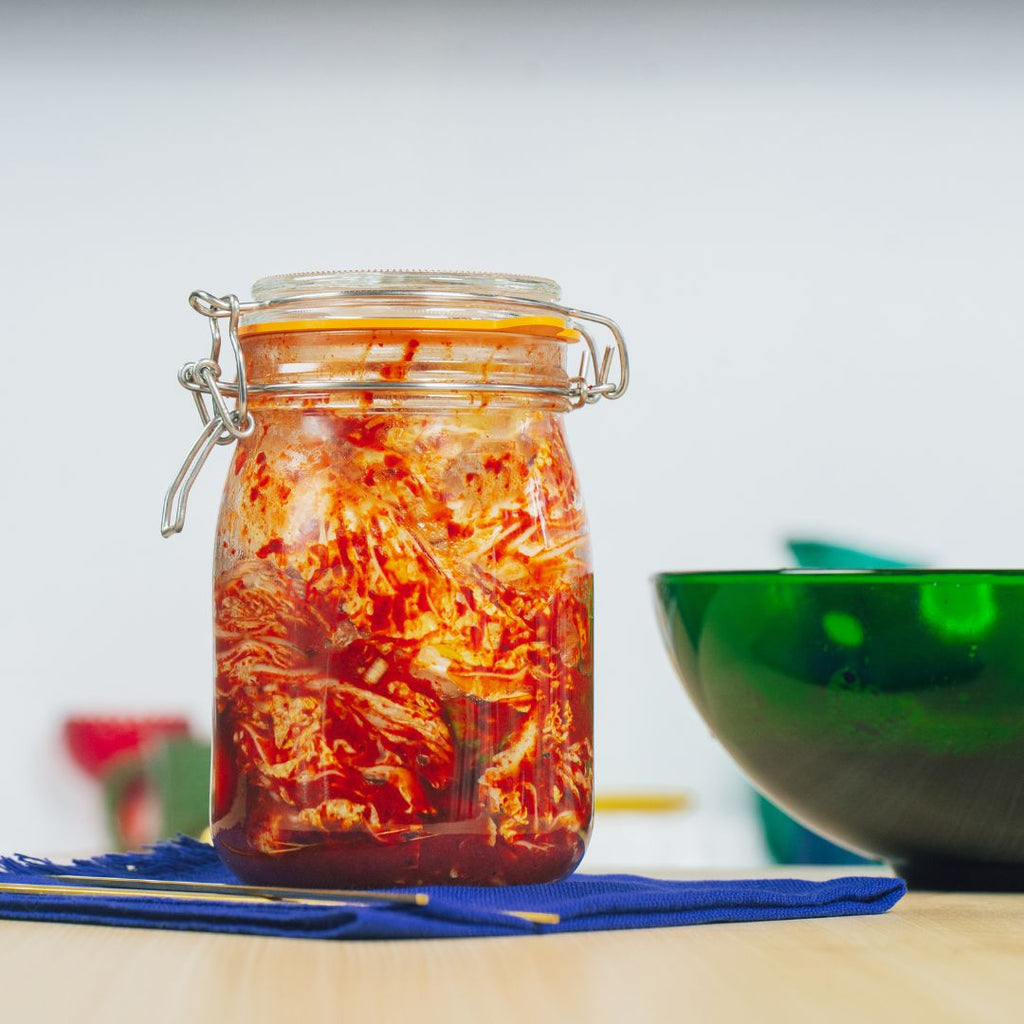
Alright, aside from the lifestyle changes we've mentioned earlier, there are a few more ways you can put an end to this leaky gut saga. So, let's break it down:
Probiotics: Your Gut's Best Friend
Now, let's talk about probiotics. These are the good guys – friendly bacteria that live in your gut and help keep things balanced. Probiotics can help restore a healthy gut flora, which is often out of whack in cases of leaky gut. You can take probiotic supplements or eat fermented foods like yogurt, kefir, kimchi and sauerkraut are loaded with probiotics that can help restore a healthy gut flora.
But how do they work, you ask? Well, these microscopic helpers do a few different things. They help break down food, absorb nutrients, and fight off harmful bacteria. When you've got a good balance of probiotics in your gut, things just run a lot smoother.
More Dietary Choices to Treat Leaky Gut
Let's start with what's on your plate. What you eat plays a big role in managing a leaky gut. You'll want to eat more foods that are gut-friendly and eat less (or none at all) of those that can cause inflammation or harm your gut barrier. Here are some rockstars of gut health:
- Bone Broth: Bone broth is like a spa treatment for your gut. It's rich in collagen and amino acids, which help repair your gut lining.
- Fruits and Vegetables: These are packed with fiber, which is basically food for your gut bacteria. Plus, they're rich in antioxidants that help reduce inflammation.
- Water: And don't forget to hydrate! Ample water intake is crucial for maintaining good digestive health.
Heal Your Gut with Some Power-Packed Multivitamins!

Now, let's chat about one more thing – multivitamins! Multivitamins play a critical role in patching up that leaky gut of yours, and here's how they do it.
While we all aim for a balanced diet, we sometimes fall short of getting all the nutrients we need. This is called hidden hunger and it affects around 2 billion people worldwide. That's where multivitamins step in, filling in those nutritional gaps. For a leaky gut, specifically, some of the MVPs include vitamins A, D, and E and zinc.
Vitamin A, a real team player, works to maintain and repair the lining of your gut. Vitamin D, on the other hand, is a bit of a peacekeeper. It helps keep inflammation in check, reducing the stress on your gut. Then we've got Vitamin E, an antioxidant superstar, fighting off harmful free radicals that might further damage your gut lining.
And let's not forget about our mineral buddies, such as zinc. Zinc is a healing champ, helping to repair your damaged gut wall.
Not to mention, with a leaky gut you may have nutrient malabsorption, so taking a good multivitamin can help ensure you're getting all the necessary nutrients.
So, picture this: these vitamins and minerals, each performing their own unique role, coming together to form a supergroup dedicated to restoring harmony in your gut.
First Day Gummy Multivitamins: The Gut-Friendly Choice
Now, you might be thinking – okay, all this info is great and all, but what's the best way to get these vitamins and minerals? And that's where First Day Gummy Multivitamins come in.
Our yummy gummies are packed with essential vitamins including A, D, and E, as well as zinc – all of which are crucial for a healthy gut. Plus, our formula is vegan-friendly, gluten and dairy-free, so they're gentle on your gut and suitable for most dietary restrictions. Instead, our gummies are made with organic fruits and vegetables, they're flavorful and fun to eat.
Plus, with no artificial sweeteners, additives, or preservatives, you can rest easy knowing you're giving your gut the good stuff. As for the sweetness? That comes from organic cane sugar, just enough to make your taste buds do a happy dance!
So, why wait? Embrace the joy of First Day multivitamins and kickstart a healthy habit that your gut will thank you for!
Say Yes to A Happy, Healthy Gut With First Day Gummy Multivitamins!
So, What is Leaky Gut Really?
Overall, a leaky gut isn't some fancy health-nut jargon, but a real issue that could be messing with more than just your tummy troubles. And while it might sound like a big bummer, remember, you've got a whole arsenal of tools to combat it – from gut-loving foods and probiotics to power-packed multivitamins.
But don't forget to speak to your doctor first if you suspect you have a leaky gut or any other health concerns. They can help guide you in creating a personalized plan for optimal gut health.
Remember, taking care of your gut goes beyond just treating a leaky gut. It's about maintaining a healthy balance and nourishing your body with the right nutrients. So, make sure to prioritize your gut health and make First Day Gummy Multivitamins a part of your daily routine for a happier, healthier you!
So, here's to happy and healthy guts!
Say Yes to A Happy, Healthy Gut With First Day Gummy Multivitamins!
References:
Admin. (2023, March 31). Do you really want that hamburger? Exploring the links between diet, gut health and diabetes - USF Health News. USF Health News. https://hscweb3.hsc.usf.edu/blog/2023/03/31/do-you-really-want-that-hamburger-exploring-the-links-between-diet-gut-health-and-diabetes/
Lee, B., Moon, K. M., & Kim, C. Y. (2018). Tight Junction in the Intestinal Epithelium: Its Association with Diseases and Regulation by Phytochemicals. Journal of Immunology Research, 2018. https://doi.org/10.1155/2018/2645465
Camilleri, M. (2019). Leaky gut: mechanisms, measurement and clinical implications in humans. Gut, 68(8), 1516–1526. https://doi.org/10.1136/gutjnl-2019-318427
Poor diet one suspected cause of leaky gut syndrome. (n.d.). Www.uclahealth.org. https://www.uclahealth.org/news/poor-diet-one-suspected-cause-of-leaky-gut-syndrome#:~:text=The%20cause%20of%20leaky%20gut
Madison, A., & Kiecolt-Glaser, J. K. (2019). Stress, depression, diet, and the gut microbiota: human–bacteria interactions at the core of psychoneuroimmunology and nutrition. Current Opinion in Behavioral Sciences, 28(3), 105–110. https://doi.org/10.1016/j.cobeha.2019.01.011
Li, Y., Hao, Y., Fan, F., & Zhang, B. (2018). The Role of Microbiome in Insomnia, Circadian Disturbance and Depression. Frontiers in Psychiatry, 9. https://doi.org/10.3389/fpsyt.2018.00669
Tulstrup, M. V.-L., Christensen, E. G., Carvalho, V., Linninge, C., Ahrné, S., Højberg, O., Licht, T. R., & Bahl, M. I. (2015). Antibiotic Treatment Affects Intestinal Permeability and Gut Microbial Composition in Wistar Rats Dependent on Antibiotic Class. PLOS ONE, 10(12), e0144854. https://doi.org/10.1371/journal.pone.0144854
Bhatt, A. P., Gunasekara, D. B., Speer, J., Reed, M. I., Peña, A. N., Midkiff, B. R., Magness, S. T., Bultman, S. J., Allbritton, N. L., & Redinbo, M. R. (2018). Nonsteroidal Anti-Inflammatory Drug-Induced Leaky Gut Modeled Using Polarized Monolayers of Primary Human Intestinal Epithelial Cells. ACS Infectious Diseases, 4(1), 46–52. https://doi.org/10.1021/acsinfecdis.7b00139
Bishehsari, F., Magno, E., Swanson, G., Desai, V., Voigt, R. M., Forsyth, C. B., & Keshavarzian, A. (2017). Alcohol and Gut-Derived Inflammation. Alcohol Research : Current Reviews, 38(2), 163–171. https://www.ncbi.nlm.nih.gov/pmc/articles/PMC5513683/
Rapin, J. R., & Wiernsperger, N. (2010). Possible links between intestinal permeablity and food processing: a potential therapeutic niche for glutamine. Clinics, 65(6), 635–643. https://doi.org/10.1590/s1807-59322010000600012
Camilleri, M., & Gorman, H. (2007). Intestinal permeability and irritable bowel syndrome. Neurogastroenterology and Motility: The Official Journal of the European Gastrointestinal Motility Society, 19(7), 545–552. https://doi.org/10.1111/j.1365-2982.2007.00925.x
Mann, E. A., Bae, E., Kostyuchek, D., Chung, H. J., & McGee, J. S. (2020). The Gut Microbiome: Human Health and Inflammatory Skin Diseases. Annals of Dermatology, 32(4), 265. https://doi.org/10.5021/ad.2020.32.4.265
Paray, B. A., Albeshr, M. F., Jan, A. T., & Rather, I. A. (2020). Leaky Gut and Autoimmunity: An Intricate Balance in Individuals Health and the Diseased State. International Journal of Molecular Sciences, 21(24). https://doi.org/10.3390/ijms21249770
Ohlsson, L., Gustafsson, A., Lavant, E., Suneson, K., Brundin, L., Westrin, Å., Ljunggren, L., & Lindqvist, D. (2018). Leaky gut biomarkers in depression and suicidal behavior. Acta Psychiatrica Scandinavica, 139(2), 185–193. https://doi.org/10.1111/acps.12978
Aleman, R. S., Moncada, M., & Aryana, K. J. (2023). Leaky Gut and the Ingredients That Help Treat It: A Review. Molecules, 28(2), 619. https://doi.org/10.3390/molecules28020619
Carabotti, M., Scirocco, A., Maselli, M. A., & Severi, C. (2015). The gut-brain axis: interactions between enteric microbiota, central and enteric nervous systems. Annals of Gastroenterology : Quarterly Publication of the Hellenic Society of Gastroenterology, 28(2), 203–209. https://www.ncbi.nlm.nih.gov/pmc/articles/PMC4367209/#:~:text=The%20gut%2Dbrain%20axis%20(GBA
Appleton, J. (2018). The Gut-Brain Axis: Influence of Microbiota on Mood and Mental Health. Integrative Medicine: A Clinician’s Journal, 17(4), 28–32. https://www.ncbi.nlm.nih.gov/pmc/articles/PMC6469458/
Mayer, E. A., & Tillisch, K. (2011). The Brain-Gut Axis in Abdominal Pain Syndromes. Annual Review of Medicine, 62(1), 381–396. https://doi.org/10.1146/annurev-med-012309-103958
Camilleri, M. (2019). Leaky gut: mechanisms, measurement and clinical implications in humans. Gut, 68(8), 1516–1526. https://doi.org/10.1136/gutjnl-2019-318427
Wang, X., Zhang, P., & Zhang, X. (2021). Probiotics Regulate Gut Microbiota: An Effective Method to Improve Immunity. Molecules, 26(19), 6076. https://doi.org/10.3390/molecules26196076
Leeuwendaal, N. K., Stanton, C., O’Toole, P. W., & Beresford, T. P. (2022). Fermented Foods, Health and the Gut Microbiome. Nutrients, 14(7), 1527. https://doi.org/10.3390/nu14071527
Mar-Solís, L. M., Soto-Domínguez, A., Rodríguez-Tovar, L. E., Rodríguez-Rocha, H., García-García, A., Aguirre-Arzola, V. E., Zamora-Ávila, D. E., Garza-Arredondo, A. J., & Castillo-Velázquez, U. (2021). Analysis of the Anti-Inflammatory Capacity of Bone Broth in a Murine Model of Ulcerative Colitis. Medicina, 57(11), 1138. https://doi.org/10.3390/medicina57111138
Lakshmanan, A. P., Mingione, A., Pivari, F., Dogliotti, E., Brasacchio, C., Murugesan, S., Cusi, D., Lazzaroni, M., Soldati, L., & Terranegra, A. (2022). Modulation of gut microbiota: The effects of a fruits and vegetables supplement. Frontiers in Nutrition, 9. https://doi.org/10.3389/fnut.2022.930883
Lowe, N. M. (2021). The global challenge of hidden hunger: perspectives from the field. Proceedings of the Nutrition Society, 80(3), 283–289. https://doi.org/10.1017/s0029665121000902
Lima, A. A. M., Soares, A. M., Lima, N. L., Mota, R. M. S., Maciel, B. L. L., Kvalsund, M. P., Barrett, L. J., Fitzgerald, R. P., Blaner, W. S., & Guerrant, R. L. (2010). Vitamin A supplementation effects on intestinal barrier function, growth, total parasitic and specific Giardia spp. infections in Brazilian children: a prospective randomized, double-blind, placebo-controlled trial. Journal of Pediatric Gastroenterology and Nutrition, 50(3), 309–315. https://doi.org/10.1097/MPG.0b013e3181a96489
Fletcher, J., Cooper, S. C., Ghosh, S., & Hewison, M. (2019). The Role of Vitamin D in Inflammatory Bowel Disease: Mechanism to Management. Nutrients, 11(5), 1019. https://doi.org/10.3390/nu11051019
Riaz Rajoka, M. S., Thirumdas, R., Mehwish, H. M., Umair, M., Khurshid, M., Hayat, H. F., Phimolsiripol, Y., Pallarés, N., Martí-Quijal, F. J., & Barba, F. J. (2021). Role of Food Antioxidants in Modulating Gut Microbial Communities: Novel Understandings in Intestinal Oxidative Stress Damage and Their Impact on Host Health. Antioxidants, 10(10), 1563. https://doi.org/10.3390/antiox10101563
Scarpellini, E., Balsiger, L. M., Maurizi, V., Rinninella, E., Gasbarrini, A., Giostra, N., Santori, P., Abenavoli, L., & Rasetti, C. (2022). Zinc and gut microbiota in health and gastrointestinal disease under the COVID‐19 suggestion. BioFactors, 48(2), 294–306. https://doi.org/10.1002/biof.1829

